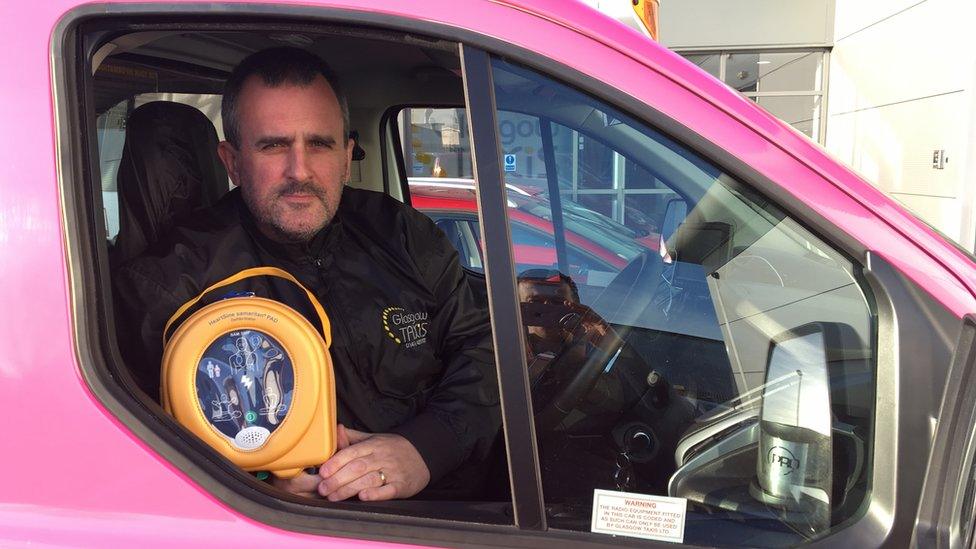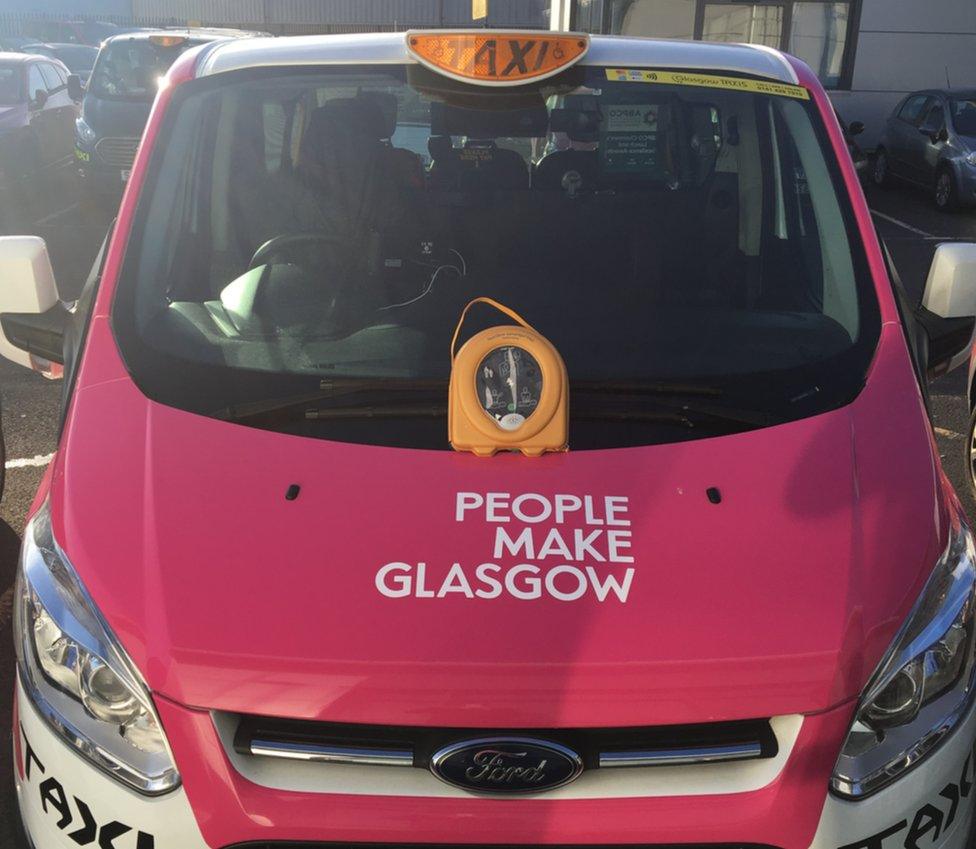Cardiac arrest defibrillators installed in 15 Glasgow taxis
- Published

Driver Stephen Lalley got involved after he suffered heart problems himself
A taxi firm in Glasgow has taken on the role of life saver with a new medical trial.
Glasgow Taxis has installed cardiac arrest defibrillators in 15 of its city cabs.
The trial is the first of its kind in Scotland and will see drivers carry the life-saving devices while on shift around the city's streets.
The trained drivers will be able to use them in emergencies and they will be available for use in or near the taxis.
Glasgow Taxis has already established a first aid training policy and says this takes its community commitment further.
'Yer a lifesaver'
One of the defibrillator-trained taxi drivers is Stephen Lalley, who himself suffered heart problems last year.
He said: "I was thinking about it when we got our training, quite often when we pick people up on a dark night and in the rain they'll say to us: 'Aw driver, yer a lifesaver' - well that phrase could take on a whole new meaning now.
"I think it's a brilliant idea and we're all very proud to represent an organisation which wants to help the people of its city in ways such as this."

The defibrillators will be available for use in the wider community
The company says it will roll out more defibrillators to more vehicles should the initiative prove a success.
Stephen Flynn, chairman of Glasgow Taxis Ltd, said: "Quite simply, this is what we do. We don't just drive taxis and take people from A to B, we are committed to giving back whether that's through charitable support, fundraising events or this latest initiative.
"By introducing 15 potentially-lifesaving defibrillators to our taxis we are utilising the very natural willingness of our drivers to help people with a test of the benefits of having these machines available in our vehicles, not only for driver use but to the wider communities of Glasgow.
"It's a modest outlay which we have committed to over a three-year period and if even one machine helps one person in that time, it will have been worth it many times over."
'Every second counts'
Pat O'Meara, from the Scottish Ambulance Service, said: "Patients have a much better chance of surviving a cardiac arrest if they are treated quickly so having a defibrillator close to hand can mean the difference between life and death.
"These devices play a vital role of keeping a patient alive in the vital first few minutes until a paramedic arrives to take over."
David McColgan, of British Heart Foundation Scotland, said: "A cardiac arrest is the ultimate medical emergency and every minute without CPR reduces a person's chance of survival. Alongside administering CPR, the early use of a defibrillator is a key link in the chain of survival.
"When someone has a cardiac arrest every second counts and evidence shows that an individual is considerably more likely to survive discharge from hospital, and with favourable outcomes, if shocked by a bystander rather than having to wait for an ambulance.
"This is a positive contribution by Glasgow Taxis. It will increase the number of defibrillators and their visibility in the city and is a move BHF Scotland welcomes as we work towards creating a nation of lifesavers."